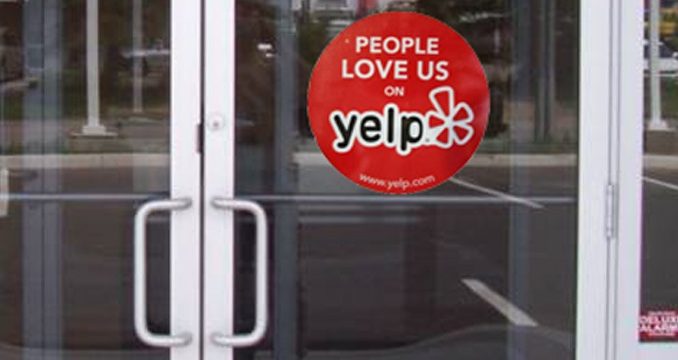
Article submitted by: Reputation Stars
Yelp is in the hot seat again. On May 22, the social review site fought back once again by responding to claims that it gives special treatment to companies that purchase advertising on the site and punishes non-advertisers.
In a company blog post, Vince Sollitto, vice president of communications and public affairs at Yelp, wrote: “Let me be clear: This claim is not – and has never been – true.”
Yelp has been known to either boost or destroy a company’s reputation. For example, according to a 2011 study by Harvard Business School on the impact of consumer reviews on the restaurant industry, a “one-star increase in Yelp rating leads to a 5-9 percent increase in revenue.” However, everyone knows that bad reviews on Yelp can destroy a successful business, and getting them removed by Yelp can be nearly impossible.
So what is the real issue? According to the Los Angeles Times, businesses are upset, concerned, or confused about Yelps infamous automatic review filter. They agree that positive reviews are very often filtered while negative reviews are displayed. They also claim extortion, stating that Yelp sales agents have said they can remove negative reviews if they pay for advertising on the site.
But according to Yelp, the courts have dismissed these claims for lack of evidence. In the official blog post, Sollitto gives two more reasons why these claims are not true: 1) Third party research conducted by Harvard Business School and Tale professors have debunked the allegations, and 2) A quick Google search reveals that there are thousands of non-advertisers with four and five-star ratings featured on Yelp.
So why are so many companies insisting that Yelp is a business killer? Yelp believes it is because of the consumers who are “trying to game the system.” Although the social review site does admit there is a downside to running automated filter software: out of 39 million reviews, “some perfectly legitimate reviews are inevitably caught in the filter.”
